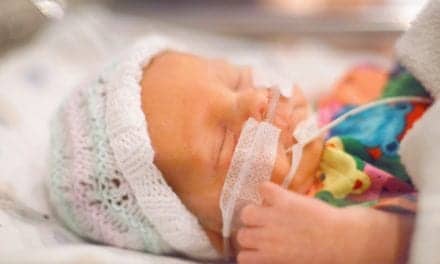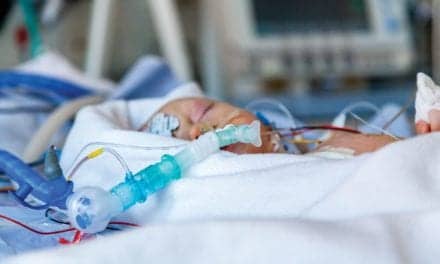Very premature babies who were given caffeine to regulate their breathing have a significantly lower incidence of disabilities at the age of 2 years, according to November 8 issue of the New England Journal of Medicine.
According to Barbara Schmidt, the principal investigator of the research project, the study results showed that out of 2,000 premature babies, 46% receiving the placebo died or survived with a neurodevelopmental disability. Of the babies receiving caffeine therapy, only 40% had an unfavorable outcome by the time they reached the end of their second year of life.
“It definitely gives hope to parents,” said Barbara Schmidt, the principal investigator of the research project. “Of all the drugs we use in the neonatal intensive care unit, caffeine is the first to have been shown conclusively to reduce long-term disability in very preterm babies.”
Caffeine reduced the rates of cerebral palsy and cognitive delay but had no significant effect on the rates of death, bilateral blindness, and severe hearing loss.
Apnea occurs in approximately 85% of infants who are born at less than 34 weeks gestation. For more than 30 years, therapies known as methylxanthines, including caffeine, have been used to reduce the frequency of apnea and the need for mechanical ventilation. However, it has remained uncertain whether methylxanthines had any additional benefits or risks in premature infants.
Earlier findings released last year by the same research team revealed that babies who received caffeine had a lower incidence of abnormal lung development than infants who were given a placebo.
Schmidt said that half the beneficial treatment effect at 2 years of age was explained by the fact that babies receiving caffeine therapy came off ventilators sooner. “Ventilation is a double-edged sword,” she said. “While it is life-saving, at the same time, it causes injury— scarring the immature lung, which is very susceptible to damage.”









